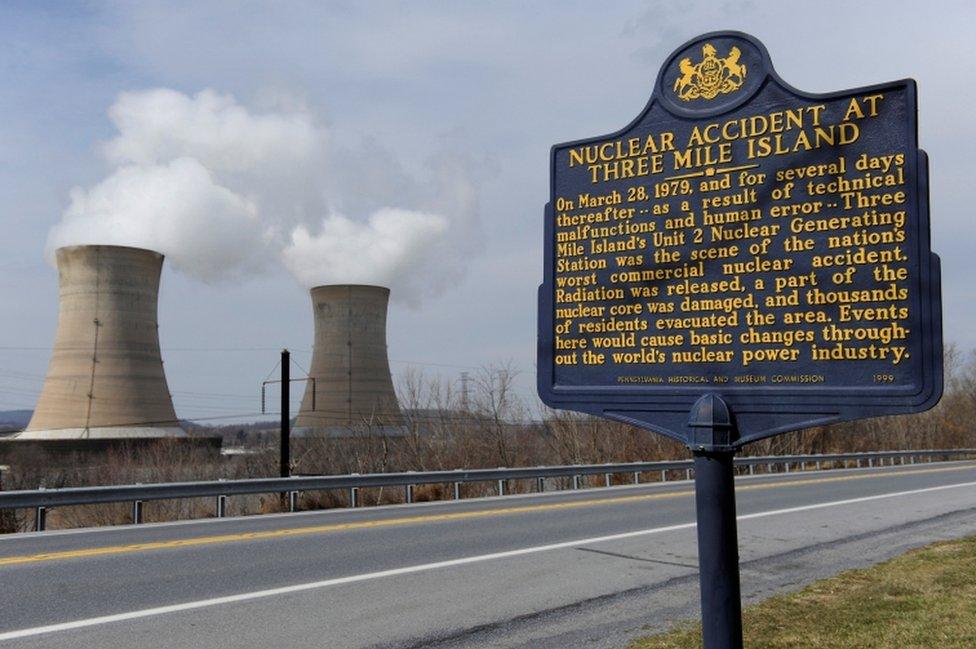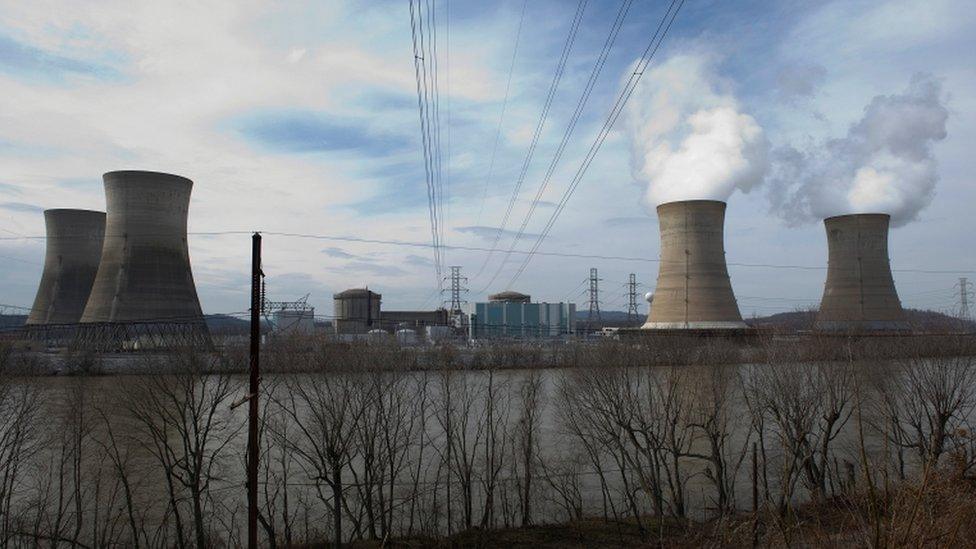Three Mile Island to close 40 years after nuclear accident
- Published

Three Mile Island's meltdown triggered evacuations
A Pennsylvania power plant which triggered the worst nuclear disaster in US history is to close, its owner says.
Three Mile Island - which experienced a partial reactor meltdown in 1979, spawning nationwide protests - will shut in 2019.
Exelon Corp, which owns the facility, said the low cost of natural gas extraction had made nuclear-generated electricity unprofitable.
Since 2013, six nuclear reactors in the US have shut for economic reasons.
Fragile future for US nuclear power
Nuclear plants have closed before their licences expired in California, Florida, Nebraska, Vermont and Wisconsin, with more set to be decommissioned in the next several years.
The low cost of electricity is being attributed to natural gas extraction from shale formations such as in Pennsylvania's Marcellus region.

The Three Mile Island meltdown occurred on 28 March, 1979, alarming more than two million people who lived nearby and the city of New York 180 miles (300km) away.
A federal inquiry found no deaths or injuries were caused by the accident, though it dented public confidence in nuclear energy for years.
In 1994 a protester drove through the gates of Three Mile Island, causing the company to spend more than $1m (£777,000) on security upgrades.
Further upgrades were ordered after the 11 September 2001 terrorist attacks.
Three Mile Island employs 675 people, supplies power to 800,000 homes, and pays more than $1m in state income taxes, according to the company.

Fragile future for US nuclear power - by BBC Environment Correspondent Matt McGrath
No one died, there were no direct health impacts, but the Three Mile Island nuclear accident burned so deeply into the US psyche that it has helped limit the future use of the power source across America.
While citizens were frightened by TMI, so too were investors. The accident happened after just three months of commercial operation causing the plant owner to go bankrupt. The whole clean up effort took 14 years and cost almost $1bn.
In the wake of TMI, demand for nukes fell through the floor. The Watts Bar plant in Tennessee, the first new nuclear installation in the US, became operational in 2016, two decades after the previous one.
Many US scientists, greatly concerned by the threat of climate change, have come out in support of nuclear. They argue that the need for large-scale low-carbon energy outweighs concerns over safety.

- Published30 May 2017
- Published28 March 2011